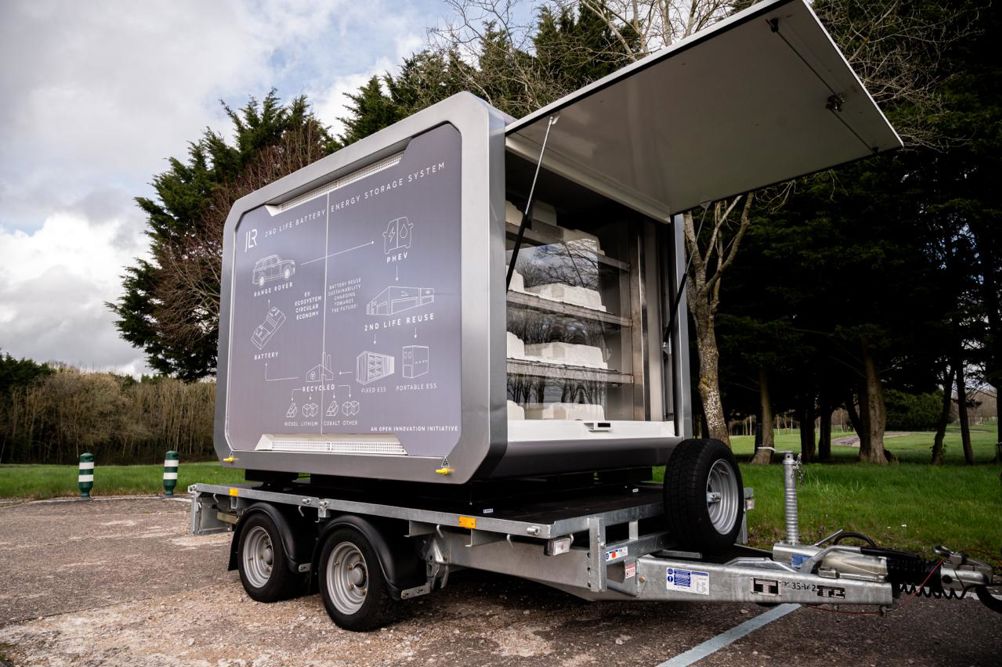Storing 270kWh of energy, the Battery Energy Storage System (BESS) can fully recharge up to nine Range Rover PHEV vehicles simultaneously. JLR plans to use the BESS to provide zero carbon charging for its full electric Range Rover, due to launch later in 2024. According to the carmaker, the BESS will power more than 1,000 hours of testing for the Range Rover Electric, saving around 15.5 tonnes of CO2 over the course of a year.
Related content
“This battery innovation and partnership with Allye demonstrates the value we can create from repurposing and reusing batteries, such as from our Range Rover vehicles,” said François Dossa, executive director, Strategy and Sustainability at JLR.
“We are creating new value from a used commodity that would otherwise go directly to recycling, keeping them in use for longer, and providing innovative renewable energy storage solutions.”
Weighing around 3.5 tonnes, the Allye MAX BESS holds seven second-life Range Rover PHEV battery packs. During off-road testing of the Range Rover Electric, JLR’s engineering team will use the BESS to rapidly charge the vehicle in between runs, topping up the system with low power grid connections or even solar. This will enable the team to avoid using diesel generators that can require up to 16 litres of fuel per hour.

JLR says its network of more than 3,000 retailers could use the platform to support rapid charging where faster grid connections are unavailable. Alongside a planned a roll out at JLR sites, the MAX BESS will also be commercially available to third parties, forming part of JLR’s Reimagine strategy that will see the company invest £15bn into electrification and energy storage.
“The deployment of Range Rover PHEV batteries in the MAX underscores Allye’s agnostic approach to integrating batteries from different models, of different states of health (SoH), and cell chemistries to maximise efficiency and sustainability,” said Jonathan Carrier, CEO of Allye.
“The Allye team is grateful to Andrew Whitworth, and Battery Business Unit team at JLR, for their commitment to closed-loop battery innovation. We are looking forward to continuing our partnership and the opportunity to give every JLR battery the chance to live a second life in energy storage.”











Emergency law passed to protect UK steelmaking
<b>(:-))</b> Gareth Stace as director general of trade body UK Steel, is obviously an expert on blast furnace technology & operation. Gareth...